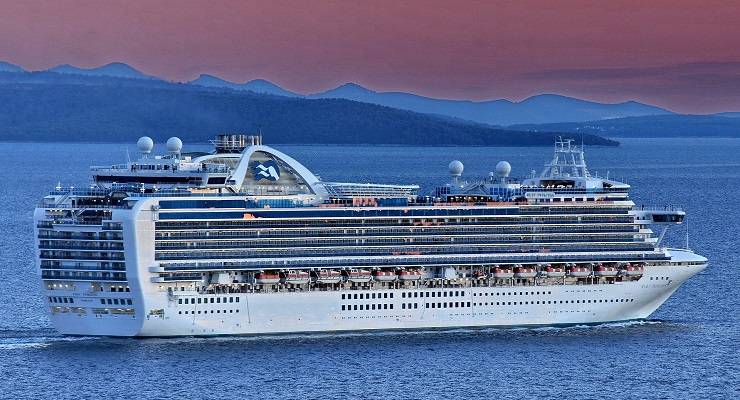
The cruise industry’s penchant for registering businesses and ships in off-shore tax havens may be coming back to bite it.
The practice has so far seen several major cruise companies left out of the US’ recent bailout package, being denied access to any funds such as the US$58 billion that will be made available to American airlines of all sizes.
Big lines such as Carnival, Royal Caribbean and Norwegian have based themselves in the US, while actually registering their ships in well-known shipping havens like Panama.
Although many are headquartered in Miami, most incorporate in places where they aren’t subject to US federal income taxes and American minimum wage rules.
The cruise industry, which has large fixed costs, is now bracing for the possibility of having to go months without customers. With no cash coming in, it needs money. Lots of it.
Being incorporated in countries like Panama makes them hard to sue, but already there are fears that a spate of class action court cases in significant markets could drive companies out of business following cases in which passengers were infected with COVID-19.
The company really in the gun is industry leader Carnival. Its Princess line of ships have turned out to be vectors of COVID-19 infections in countries such as Australia and Japan. They may be disasters waiting to happen in parts of the US and Asia.
This week, Carnival looked to raise cash to help it remain afloat for the next year or more. It issued shares, bonds and other securities worth US$6 billion. It was one of dozens of US-operating companies that raised (according to Bloomberg and The Financial Times) a record US$240 billion in share issues and debt in the past week or so.
But unlike companies such as Fox, Comcast and Disney, Carnival struggled and had to pay a huge price.
Because its share price had, since January, collapsed from US$51 to around US$8.80 by Wednesday, it needed to offer a lot more bonds and other securities on which the interest rate was 12.5%.
And because the debt is now seen as being weaker than junk (Carnival is rated BBB), the bonds will be issued at a discount, pushing the effective yield past 13%, Bloomberg reports. When good quality companies can borrow for 2% or less, Carnival’s “dog” status is clear for everyone to see.
Reports say the 12.5% yield on Carnival’s US dollar bonds is higher than any other issues.
These rates are distressed prices for money, and point to market doubts that the cruise company can survive in its present form.
It might have seemed clever to design a corporate structure to game US investment and cruise markets, and make a lot of money while doing so. But it has locked Carnival and its rivals out of accessing the US$2 trillion support package passed by Congress last week.
It’s yet to be seen whether Carnival will stay left out in the cold. Chair Micky Arison is a friend of President Donald Trump. His company sponsored Trump’s TV show The Apprentice, and he gave US$500,000 to the 2016 Trump presidential campaign. Arison has offered Carnival ships as floating hospitals amid the coronavirus crisis, which bought favourable comments from Trump.
US Congress will arc up if foreign-registered companies are allowed to access the support package — it was a major issue in the global financial crisis when the US$700 billion bailout package for banks and finance groups was accessed by foreign banks.








There is nothing inherently wrong with live animal shipping; it’s just that it has been done in an unkind manner.
If the cruise lines fold there will be a better class of transport available to repurpose at bargain rates. A look at the number of human beings that are packed on these ships gives an idea of the potential.
Quite likely the economics would be prohibitive but the thought of a cruise ship full of sheep is at least entertaining.
They already are full of sheep(le).
The demise of the cruise ship industry will be beneficial to the Australian economy. The thousands that Superannuated Boomers spent on this travel disappeared offshore to the Bahamas and Panama. Better the grey nomads circumnavigating the big brown land.
So no bail-out for Carnival, at last some good news !
In the meantime,what of the fate of the crews that remain on these floating virus incubators ? Bail-out or not, Carnival & Co. don’t seem too concerned.
Frankly, anyone who boarded a cruise ship after February 6 footage of the Diamond Princess emerged, deserves no sympathy. Moored off Yokohama, with no prospects, in claustrophobic cabins, many with no natural light/air, the passengers were Skyping their plight around the world. Nobody in the affluent Western world could’ve missed it on the news services. But they boarded the ships nevertheless.
Good luck with a class claim they caught Covid-19 – who could’ve ever predicted it after seeing the Diamond Princess….
The plight of the crews is a more serious matter. They are under-paid foreigners from poor countries who have few options in life. To them, being a quasi-slave while on a regular income would look attractive.
With you zut.
As callous as this may sound, the crew personnel from some of the Third World countries might actually be better off on a Princess ship than back in their home country. Bangladesh is a prime example.
https://www -dot-benarnews -dot -org/english/news/bengali/draft-memo-03302020183916.html
And when the virus gets into the Rohingya refugee camps in the south of Bangladesh near the Myanmar border, it will be catastrophic, even apocalyptic. There will be people trying to escape further into Bangladesh and others trying to cross back into Myanmar. People smugglers will be queued up offshore to take those who can afford it away to India, Thailand and Indonesia.